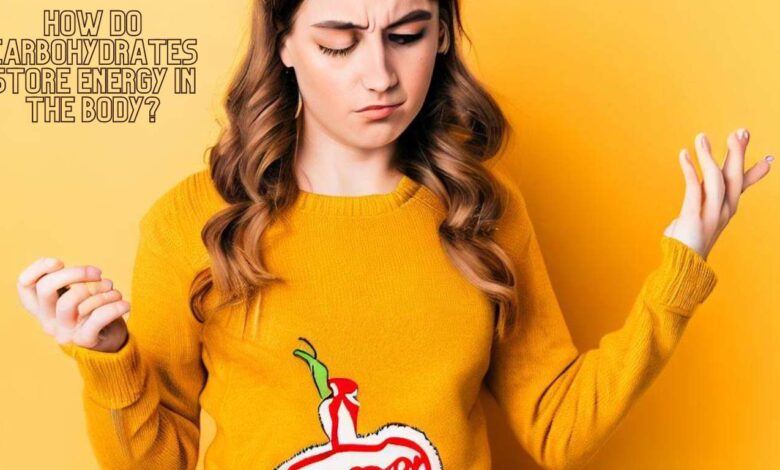How Do Carbohydrates Store Energy in the Body?

Carbohydrates are like fuel for our bodies. They give us energy and help us stay healthy. Let’s learn about how carbohydrates keep our bodies energized. We’ll explore the interesting world of how carbohydrates work in our bodies.
What Are Carbohydrates?
Carbohydrates are special chemicals made up of carbon, hydrogen, and oxygen. Our bodies need them a lot to stay healthy, just like we need proteins and fats. Carbohydrates are what gives our bodies the energy to do their jobs.
Different Kinds of Carbohydrates
Carbohydrates come in different types based on their chemical makeup. The main types are monosaccharides, disaccharides, oligosaccharides, and polysaccharides. Monosaccharides are the simplest kind and include sugars like glucose, fructose, and galactose. Disaccharides, like sucrose and lactose, are made up of two sugar parts joined together. Oligosaccharides and polysaccharides are made of lots of sugar parts connected.
Types of Carbohydrates
There are two main kinds of carbohydrates: simple and complex. Simple carbohydrates have one or two sugar parts. Our bodies quickly break them down and use them for fast energy. But they don’t have all the important stuff we need. Complex carbohydrates are different because they have long chains of sugar parts. They take more time to break down, which is better for us. They also come with vitamins, minerals, and fiber that help us stay healthy.
Digestion and Absorption of Carbohydrates
Carbohydrate digestion starts in the mouth with an enzyme called amylase. It breaks down complex carbs into smaller sugar molecules. In the stomach and small intestine, more enzymes break down carbohydrates into simpler forms like glucose. Smaller molecules are absorbed into the bloodstream. They are then transported to different cells and tissues in the body.
Role of Insulin in Carbohydrate Metabolism
Insulin, which is made by the pancreas, is important for how our body uses carbohydrates. After a meal, when your blood sugar levels go up, your pancreas releases insulin. This helps your cells take in glucose. Insulin helps store extra glucose as glycogen in the liver and muscles. This stored glycogen can be used for energy when needed later on.
Glycogen Storage in the Liver
The liver serves as a major site for glycogen storage. When blood glucose levels are high, the liver takes in glucose and turns it into glycogen. This process is called glycogenesis. When blood sugar levels drop, glycogen can quickly turn into glucose, which keeps the body fueled with energy.
Glycogen Storage in Muscles
Muscles store glycogen, which is used as energy during physical activity. When you exercise, your muscles break down stored glucose to generate energy. This process helps athletes and active people keep going during physical activity. It’s important for their bodies.
Carbohydrates as a Fuel Source
Carbohydrates are the body’s preferred source of energy. When you eat carbohydrates, they turn into glucose. Cells use glucose to make ATP, which is the body’s main source of energy. The brain, in particular, relies heavily on glucose as its main source of fuel.
Regulation of Blood Glucose Levels
Maintaining stable blood glucose levels is crucial for overall health and well-being. The body uses insulin and glucagon to control blood sugar levels. Insulin helps lower blood sugar levels by getting glucose into cells. On the other hand, glucagon triggers the release of stored glucose when blood sugar is too low.
Carbohydrates and Exercise
Carbohydrates play a vital role in optimizing exercise performance. Before you exercise, make sure to eat enough carbs to have energy for your muscles. During long periods of exercise, carbohydrates are the main source of fuel. They help prevent fatigue and boost endurance.
Conclusion:
Carbohydrates are essential for storing and providing energy in the body. They are a main source of fuel for your body. This helps muscles work and your brain stays sharp. To improve your health and performance, it’s helpful to learn how your body digests, absorbs, and stores carbohydrates. This knowledge can guide you in making informed dietary choices.
Including a mix of healthy carbs from real food helps keep your blood sugar stable and promotes long-term health. By using the energy from carbohydrates, you can fuel your body and live an active, healthy life.
FAQs:
What are the best sources of carbohydrates for energy?
The easiest sources of carbs for energy are foods like whole grains, fruits, veggies, and beans. These foods have special carbs, fiber, vitamins, and minerals.
Can carbohydrates make you gain weight?
If you eat too many carbs, especially processed ones, you might gain weight. It’s important to eat a balanced diet and watch how much you eat to avoid taking in too many calories.
Are all carbohydrates bad for you?
No, not all carbs are bad. When you eat fruits, veggies, and whole grains, you get good nutrients and fiber. It’s the carbs that have been changed a lot that you should be careful with.
Do carbohydrates cause diabetes?
Carbs by themselves don’t cause diabetes. But if you eat a lot of sugary stuff and too many calories, you might be more likely to get type 2 diabetes if you’re at risk.
Are low-carb diets beneficial for weight loss?
Sometimes, low-carb diets can help you lose weight quickly. But if you stick to them for a long time, you might miss out on important nutrients and have health problems. It’s better to try a balanced and long-lasting way to lose weight.
How do carbohydrates affect blood sugar levels?
Carbs can make your blood sugar go up. When you eat them, they turn into glucose, and your body needs insulin to use it.




